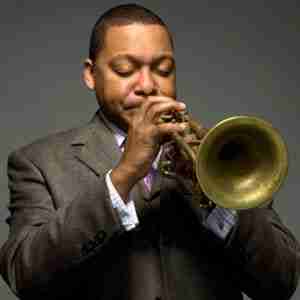It’s been a few weeks since the new year when we posted articles on setting goals and making musical resolutions. Did you make some resolutions this year? If so, how are they holding up?
Maybe you didn’t exactly make a conscious resolution, however you probably have some areas of your playing that you want to improve in the new year. Are you on track to achieve these goals or has your progress and ambition slowly come to a standstill?
Not to worry, if you haven’t stuck with those resolutions you’re definitely not alone. In fact you’re completely normal. Most resolutions and goals start out with excitement and determination, then slowly wither away after a few weeks.
Chances are you’re reading this article because you’re genuinely interested in improving your musical skill set, whether it’s ear training, improvising, music theory, or instrumental technique. That’s great, we want you to improve these skills and we want the information on this site to make a difference in your playing.
However, it’s going to take more than just reading an article to make this happen. The reality is that many people are going to read these articles and then…you guessed it, do nothing. I often did the same with the information I received from my lesson teachers, I would study my notes, make some goals in my mind, imagine getting better, and then never implement it into my daily routine.
With any type of large or life altering goals there seems to be a similar pattern in the way that resolutions are approached:
- You want to improve or notice a problem with your playing and decide to make a change
- You take the first step to research and find information on improving this skill
- You read these articles and study the information surrounding these techniques
- You get excited about improving themselves and start making goals
- You draw up a practice plan and envision change and success
- And when the time comes to actually do the work you find yourself hitting a wall, getting discouraged, and even giving up
This cycle continues over and over again, each year. It’s no different with music as it is with exercising or learning a new language. It’s much easier and fun to plan out your goals and write out your practice schedule than it is to do the actual work.
It’s a reality that I’ve often noticed in my own attempts in the past to get better. Goals and resolutions are made each year and look great on paper, yet the bleak reality is that few are often completed.
If you truly want to improve, you have to take this information and apply it to the real world in a serious way. You have to find a way to stop this cycle of mediocrity.
Creating Motivation
By now it’s probably safe to assume that you’ve found music a meaningful, enjoyable, and challenging pursuit and that you’ve made some goals to become a better musician. Now what’s going to push you to achieve these goals?
Looking back at my own experience, I’ve found that there are two main sources of motivation that will push you to achieve your goals: Inspiration and Pain.
I) Inspiration
Inspiration is defined as “the process of being mentally stimulated to do or feel something, especially to do something creative.”
Inspiration is the force that first propelled you on your musical journey. It’s your very own musical ‘big bang.’ So think back, what drew you to music in the first place? What was it that inspired you to listen to jazz (or any type of music for that matter)? Why did you feel compelled to improvise a solo? What was it about the sound coming from your favorite records or performers that stimulated your mind and spurred on the creative spirit within you?
You may not be able to put these feelings into words, but every musician has a reason for playing buried somewhere within themselves.
These intangible sources of inspiration awaken the artist inside of us and push us to improve each day. Staying connected with this source is crucial to remaining motivated as a creative individual. You want to feel like the kid that just picked out their first instrument or the music aficionado that just discovered the record that will change their life. Full of excitement and energy and striving to improve and find answers — it’s not a job or a chore, but a passion.
Musical inspiration comes from hearing great live performances, meeting your musical heroes, breaking new ground in the practice room, feeling the rush of performing in front of an audience, creating music with other musicians, and having an insightful lesson with a great teacher.
“Music has always been a matter of Energy to me, a question of Fuel. Sentimental people call it Inspiration, but what they really mean is Fuel. I have always needed Fuel…”~Hunter S. Thompson
For any musician, especially creative improvisers, New York is a vital source of inspiration. In this city I’ve met my musical heroes, I saw what was possible technically on my instrument, and what was possible musically as an improviser.
The live music that surrounds you inspires and energizes you to get serious about the music and to work harder for your musical goals in the practice room. Every other player is incessantly pushing you, both directly and indirectly, to get better . Stay on it, or get left behind!
I’ve sat inches away from Clark Terry as he taught me the melody to a tune, I talked with Tom Harrell about composing behind the Village Vanguard after one of his sets, and I’ve played with Mulgrew Miller as he directed ensembles over standard tunes. These were all events that elevated my commitment to music and motivated me to work even harder.
These experiences reconnected me with my original passion for music and gave me the inspiration to expand my limits in the practice room.
Find the things that inspire you musically and make sure you connect with them as much as you can. In the day to day routine of work and practice, it’s easy to forget what inspires us about music. Practice can become predictable and routine, a daily chore that you force yourself to endure. Instead aim to connect with the excitement of discovery and creativity that drew you to music in the first place.
II) Pain
The second source of motivation is pain.
Now don’t get worried, we’re not talking about physical pain here. What we are talking about is the pain of musical failure.
“Your pain is the breaking of the shell that encloses your understanding…”~Kahlil Gibran
Forgetting a tune or getting lost in the form at a jam session, disappointing your teacher, getting scolded by a mentor, messing up in a master class, choking at an audition, or being the worst player in an ensemble. All of these are painful experiences that we sometimes encounter as musicians.
We all feel bad when we fail, however the difference between those that improve and those that constantly struggle is the extent to which these failures impact you. To improve you need to feel bad long enough to make a change in your day to day routine. This is the pain that makes us improve.
You need an event that will stop the cycle of laziness and unproductivity. You need to feel bad enough that this experience is going to be a wake up call. It has to stop you in your tracks and knock you out of your everyday routine. Otherwise you are going to repeat this failure over and over again.
You see the failure doesn’t happen at the jam session or the audition, it happens before that moment — the time spent in the practice room leading up to that slip up. This is what needs to change, your day to day approach to music and your drive to get better.
If you don’t truly love what you’re doing, these musical mishaps can be shrugged off, another small blip on the radar. However if music is your passion, this failure and pain of not succeeding will be a slap in the face and give you a strong source of motivation to make a change. Remembering the sting of that botched audition or the embarrassment of falling apart at a jam session can propel you further than you might think.
Get out there!
For each of these sources of motivation the social aspect of music is crucial — you need other musicians to make you better.
You can only do so much in the practice room by yourself, but that extra pressure from a musical community will push you to become even better.
On one side you are pushed by your teachers, challenged to keep up with your peers, and fueled by a healthy dose of competition. On the other side the sting of failure or the shame of falling behind your peers will push you to get better and work even harder.
Without this intense motivation, both positive and negative, we stay comfortable and safe within our habits. With out other musicians, there is no force pushing you to spend just a little more time in the practice room, to reach a little further, and to dig deeper to achieve your goals.
How to overcome the moment of resistance
Once you’ve located your source of motivation, you’re not done just yet. In any goal that you set out to achieve or skill that you set out to learn, you are going to encounter a point of resistance sooner or later. No matter what your goal, there will inevitably be a moment that will test your resolve. You’ve no doubt encountered this in your work to improve as a musician.
The author Robert Greene writes of this phenomenon in his book Mastery:
“What separates Masters from others is often something surprisingly simple. Whenever we learn a skill, we frequently reach a point of frustration — what we are learning seems beyond our capabilities. Giving in to these feelings, we unconsciously quit on ourselves before we actually give up.“
For many musicians this feeling happens when they attempt a new skill or project in the practice room:
- Attempt to memorize a list of tunes
- Transcribe a solo
- Writing an original composition
- Learning a line in all 12 keys
- Working on technique (time, articulation, and range)
- Starting to learn a solo piece
You become frustrated, overwhelmed, and give up all too easily. You reach the limit of your skill set and hit a solid brick wall. I’ve felt this in my own practice as I worked on transcribing a solo or attempted to learn a list of tunes by ear. Too much information, not enough technique, and not enough time. Quite simply, it just gets too hard.
This is where you need to remember your motivation. Get inspired and remember what it felt like those times you failed, this is why you’re in the practice room today. Push through it and remember that you’re on a musical mission.
Once you push through this moment of resistance, you’ll discover something about yourself. You can transcribe solos and you can learn tunes by ear, you just have to stick with it a little longer. Sometimes it takes patience and will power to break through and at other times it just takes some time in the practice room brushing up on your fundamentals.
Greene continues:
“The difference [with Masters] is not simply a matter of determination, but more of trust and faith. Many of those who succeed in life have had the experience in their youth of having mastered some skill — a sport or game, a musical instrument, a foreign language, and so on. Buried in their minds is the sensation of overcoming their frustrations and entering the cycle of accelerated returns. In moments of doubt in the present, the memory of the past experience rises to the surface. Filled with trust in the process, they trudge on well past the point at which others slow down or mentally quit.“
The first transcribed solo, the first tune you learn by ear, and the first time you work out a new key is going to be the toughest. Keep this in mind and keep going. Once you succeed you’ll have the confidence to do it again and again and again. Continually connect with that source of inspiration or failure to push past these points of resistance. You are practicing these exercises, tunes, and solos for a reason.
Lastly, make sure that you also get into the right mindset before you practice. I often listen to a great recording to get into a musical head space and to get excited about the music. I try remember why I am playing and strive to start motivated and inspired each time I get into the practice room so I can tackle these difficult areas with determination.
Stay inspired and you’ll stay motivated
This music is all about inspiration.
The intangible force that keeps drawing you in and pushing you to improve. The creative spark, that “thing” that makes you keep trying to get better.
“The thing in jazz that will get Bix Beiderbecke out of his bed at two o’clock in the morning, pick that cornet up and practice into the pillow for another two or three hours, or that would make Louis Armstrong travel around the world for fifty plus years non stop, just get up out of his sick bed, crawl up on the bandstand and play, the thing that would make Duke Ellington, the thing that would make Thelonious Monk, Miles Davis, Charlie Parker, Mary Lou Williams, the thing that would make all of these people give their lives for this, and they did give their lives… And when you get a taste of that, there’s just nothing else you’re going to taste that’s as sweet.”~Wynton Marsalis
On your journey, inspiration will keep you motivated and pain will keep you honest, and lastly experience will give you the confidence to keep going when things get tough.
Whenever you pick up your instrument, practice an etude, or walk out on stage you must remember the reason why you’re playing this music. In the end you can take away the music, you can take away the band, and you can even take away your instrument, but that intangible inspiring force that draws you to music is always going to be there inside you. So do yourself a favor, make sure you listen to it.












